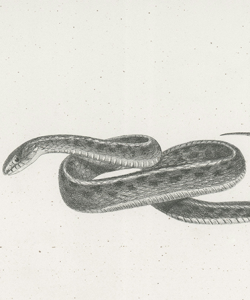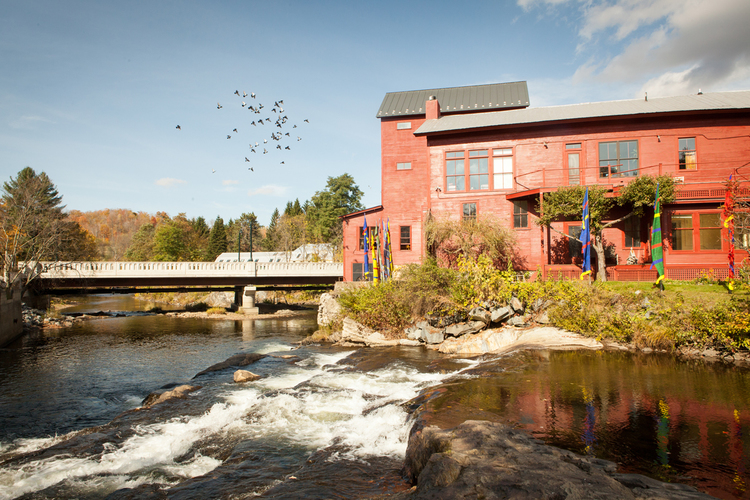Toward the Sensuous Form: Embracing New Forms of Knowing in the Essay

The author of Voice of the Fish: A Lyric Essay (Graywolf Press, 2022) considers what it would mean for the essay to embrace new kinds of meaning-making.
Jump to navigation Skip to content

The author of Voice of the Fish: A Lyric Essay (Graywolf Press, 2022) considers what it would mean for the essay to embrace new kinds of meaning-making.
As the end of the year approaches, Ann Patchett, author and owner of Parnassus Books, and Maureen Corrigan, professor and book critic for NPR’s Fresh Air, reveal their favorite books of 2025 for PBS Newshour, which include The Loneliness of Sonia and Sunny (Hogarth, 2025) by Kiran Desai, The Antidote (Knopf, 2025) by Karen Russell, and A Long Game: Notes on Writing Fiction (Ecco, 2025) by Elizabeth McCracken.
In a recent essay published on Literary Hub, Jean Chen Ho writes about spending an academic year as a visiting assistant professor in upstate New York and the isolation she experienced as an Asian American in a predominantly white neighborhood. Throughout the piece, Ho mixes her reflections about daily activities—visiting a museum, exercise, meeting colleagues, dating, and going to a local bar—with observations of her environmental surroundings and the violence and devastation in Gaza, as well as allusions to Louise Bourgeois, Jane Hirshfield, and Milan Kundera. Write a personal essay that meditates on a time when you have felt particularly alone. Where were you and what were the circumstances that contributed to your feelings of isolation? How did the environment around you, and the art or writing you connected to at the time, reflect your state of mind?
Vermont Studio Center (VSC) offers two-, three-, and four-week residencies year-round to poets, fiction writers, creative nonfiction writers, and translators in Johnson, Vermont, a village located in the heart of the northern Green Mountains. VSC offers time and space to write, readings, craft talks, and individual consultations with invited visiting writers. Residents are provided with a private room, a private or shared bathroom, private studio space, and meals as well as shared access to a kitchen and communal spaces.
Vermont Studio Center, 80 Pearl Street, P.O. Box 613, Johnson, VT 05656. (802) 635-2727.


When a memoirist studies her manuscript for patterns in theme and style, the symmetries she cultivates bring powerful shape to her book.

Ten authors answer the tenth question in our Ten Questions series: What’s the best piece of writing advice you’ve ever received?

The author of Voice of the Fish: A Lyric Essay (Graywolf Press, 2022) reflects on the ancient origins of the essay form.
It’s that time of year to send and receive holiday cards, some of which may include a family newsletter with highlights of the past year from friends and family. According to a survey from the Emily Post Institute, a family business promoting etiquette since 1922, 47 percent of respondents don’t like to receive holiday newsletters. The institute’s website suggests this might be because the letters are more of a brag sheet rather than a genuine desire to communicate. Try your hand at composing a holiday newsletter that recounts notable events and milestones from throughout the past year. Take this exercise as an opportunity to reflect on favorite memories and changes, both big and small. Perhaps you’ll decide to subvert conventional expectations and strike a subversively satirical or darkly apocalyptic tone. Have fun with it!
The 2026 Neraki International Writers Workshops will be held from June 5 to June 14 at a seaside private home and seminar space in Katigiorgis, Greece. The workshop features craft classes, generative writing sessions, small-group workshops, individual meetings with mentors, unstructured time for writing, and various wellness activities for poets, fiction writers, and creative nonfiction writers. The faculty includes poet and fiction writer Paula Closson Buck and fiction and creative nonfiction writer Jim Buck.
Neraki International Writers Workshops, c/o Paula Closson Buck, 145 Jean Boulevard, Lewisburg, PA 17837. (570) 412-2366. Paula Closson Buck, Cofounder.
Writeaways offers a weeklong retreat from April 10 to April 17 to poets, fiction writers, and nonfiction writers (including creative nonfiction writers) at the 17th century Villa Cinci and Villa Casanova located in the Chianti region of Tuscany, Italy. Residents are provided with time and space to write, writing workshops, private writing consultations, and a cooking class. The faculty includes poet and fiction writer Mimi Herman and fiction and nonfiction writer John Yewell.
Writeaways, Writeaway in Italy, P.O. Box 62012, Durham, NC 27715. Mimi Herman and John Yewell, Codirectors.